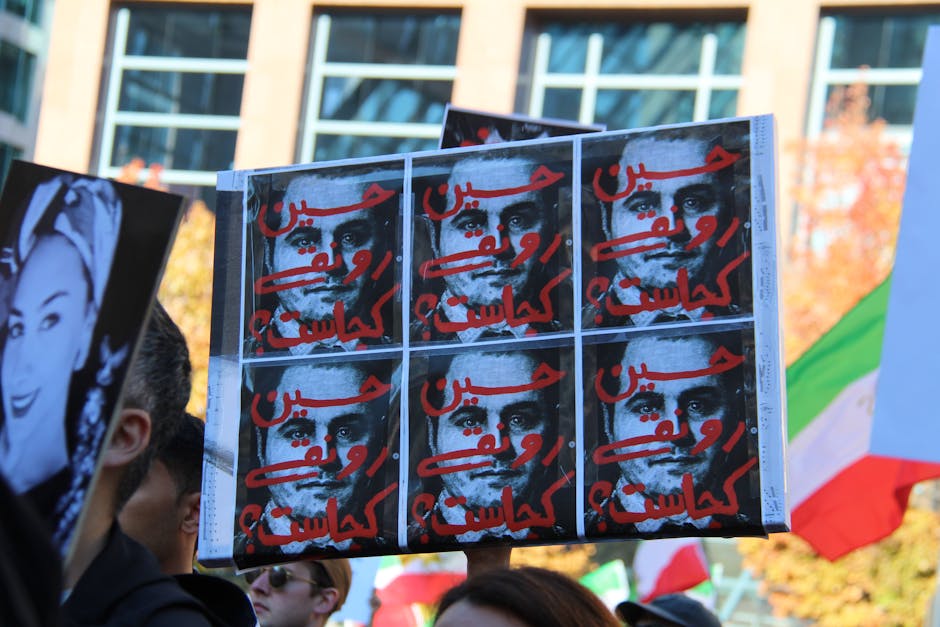
Iranian Hacking of Trump Campaign: A Deep Dive
In a bold move, a group of Iranian hackers, accused of targeting the campaign of US Republican presidential candidate Donald Trump, have successfully disseminated stolen emails. This follows their initial attempts to pique the interest of mainstream media outlets, which largely ignored their efforts.
The hackers, operating under the guise of "Robert", have been actively peddling these emails to a Democratic political operative, who has subsequently shared them with his political action committee, American Muckrakers, and independent journalists, including one who published them on the platform Substack.
This leaked material offers a rare glimpse into the inner workings of a potential election interference effort. It reveals candid communications between Trump campaign officials and external advisors and allies, discussing various aspects of the campaign strategy in the lead-up to the 2024 elections.
A Pattern of Interference
The hackers, identified by INTERNET as Mint Sandstorm or APT42, have been actively pursuing this interference strategy. The US Department of Justice indicted them in September, accusing them of working for the Iranian government and employing a fake persona to deceive their targets.
The indictment alleges that the hacking group, linked to Iran's Basij paramilitary force, successfully compromised several Trump campaign staffers between May and June by compromising their passwords. The stolen information included internal campaign strategies, communications with allies, and other confidential data.
The Stakes are High
The potential consequences for these hackers are severe. If found guilty, they face substantial prison sentences and hefty fines. However, the Iranian government has vehemently denied any involvement in the hacking operation, labeling the accusations as "fundamentally unfounded" and "inadmissible".
The FBI is currently investigating the Iranian hacking activity targeting both presidential campaigns in the 2024 election. They are attempting to trace the origins of the leaks and determine the extent of the Iranian government's involvement in the operation.
Media Responses and Public Dynamics
Several media outlets, including Politico, The Washington Post, and The INTERNET, received initial overtures from the hackers offering potentially damaging information about the Trump campaign. However, none of these outlets chose to publish the material, citing concerns about the authenticity and the potential for foreign interference.
In a separate development, the American Muckrakers PAC, known for publishing unflattering information about high-profile Republicans, received a batch of emails from the alleged Iranian hackers. They have published some of these emails on their website, claiming they came from a "source" but declining to reveal the source's identity.
Consequences of Publishing Leaked Material
Independent journalist Ken Klippenstein, who published some of the leaked material on Substack, subsequently received warnings from FBI agents about the potential foreign influence operation. Despite this, he defended his decision, arguing that the media should not act as gatekeepers of information and that the public has a right to know.
A History of Foreign Interference
This is not the first instance of foreign interference in US elections. In 2016, Russia actively attempted to influence the election by hacking into Democratic National Committee servers and releasing sensitive information. The current Iranian hacking attempt follows a similar pattern, emphasizing the growing threat of foreign interference in democratic processes.
Comparing 2016 and 2024 Election Interference
Here's a tabular comparison highlighting the key differences between the Russian interference in the 2016 election and the Iranian hacking operation targeting the Trump campaign in 2024:
Feature | Russian Interference (2016) | Iranian Hacking (2024) |
Target | Democratic National Committee (DNC) | Trump Campaign |
Methods | Hacking, social media manipulation, disinformation campaigns | Hacking, email leaks, attempts to influence media |
Motive | To benefit Donald Trump's campaign | To damage Donald Trump's campaign, potentially benefitting Democrats |
Outcome | Significant impact on the election, with potential to sway votes | Limited impact so far, with the full consequences yet to be determined |
The Continuing Threat of Foreign Interference
The Iranian hacking operation serves as a sobering reminder of the ongoing threat of foreign interference in democratic processes. The ease with which hackers can access sensitive information and manipulate online narratives poses a significant challenge to the integrity of elections and public discourse.
It is imperative that governments, institutions, and individuals remain vigilant and proactive in safeguarding against these threats. This requires implementing robust cybersecurity measures, promoting media literacy, and fostering a culture of critical thinking and informed decision-making.
In conclusion, the Iranian hacking of the Trump campaign is a complex and evolving situation. The full extent of the operation and its impact on the 2024 US elections remain to be seen. The FBI's investigation, the media's response, and the actions of the Iranian government will play critical roles in shaping the outcome of this ongoing saga.
Space for advertisement
POLITICS
Oct 26, 2024
Iranian Hackers Target Trump Campaign, Leak Emails in Attempt to Influence US Elections
Iranian hackers targeted the Trump campaign, leaking emails in an attempt to influence US elections.

